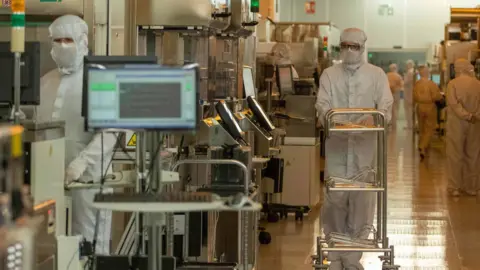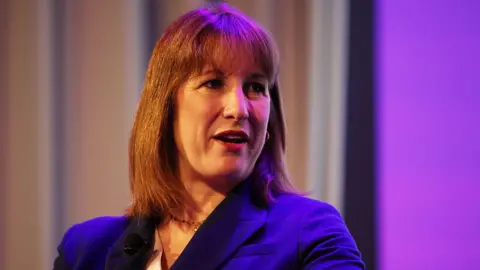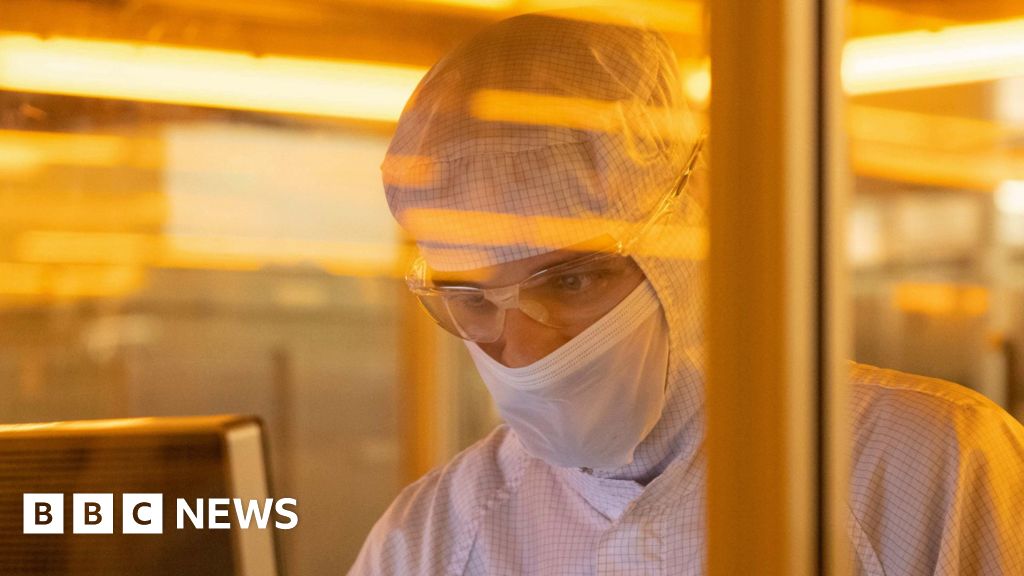Business correspondent
 Getty Images
Getty ImagesThe government has said it will spend £86bn on the science and technology sector by the end of this Parliament, ahead of Wednesday’s Spending Review.
The package will help fund research into drug treatments and longer-lasting batteries, and include up to £500m for regions across the UK with local leaders having a say on how it is spent.
Chancellor Rachel Reeves, whose review will outline day-to-day departmental and investment budgets over the next few years, said investing in the sector would create jobs and boost security.
But research backers have warned that the government needs to do more to secure the UK’s reputation for science on the world stage.
Reeves will set out departmental spending plans on Wednesday, with the package for science and technology expected to be worth more than £22.5 billion-a-year by 2029.
The Department for Science, Innovation and Technology said “every corner of the country” would benefit, with communities able to direct funding to expertise specific to their areas.
In Liverpool, which has a long history in biotech, funding will be used to speed up drug discovery. Northern Ireland will receive money to develop defence equipment, while south Wales will use the money to design microchips used to power mobile phones and electric cars.
The chancellor said: “Britain is the home of science and technology. Through the plan for change, we are investing in Britain’s renewal to create jobs, protect our security against foreign threats and make working families better off.”
Tony McBride, director of policy and public affairs at the Institute of Physics, welcomed the funding but said the government would need to commit to a decade-long plan to train workers.
“This must include a plan for the skilled workforce we need to deliver this vision, starting with teachers and addressing every educational stage, to underpin the industrial strategy,” he said.
John-Arne Rottingen, chief executive of Britain’s biggest non-governmental research funder Wellcome, warned that visa costs for scientists from overseas, financial challenges at universities and a budget that was not adjusted for inflation could hamper the government’s ambitions.
“The UK should be aiming to lead the G7 in research intensity, to bring about economic growth and the advances in health, science and technology that benefit us all.”
 Getty Images
Getty ImagesThe shadow technology secretary, Alan Mak, said the investment for the sector seemed to be a “copy and paste” of Conservative plans set out in its manifesto last year.
“As Labour and Reform squabble over how to spend more taxpayers money, only the Conservatives are creating a serious plan for government to deliver growth and give you your country back,” he added.
Earlier this week, Reeves admitted that not every government department would “get everything they want” in Wednesday’s review, saying she had turned down requests from ministers and argued a squeeze on funding was a “product of economic reality”.
Reeves said her fiscal rules on borrowing to pay for public services were “non-negotiable” and insisted they were necessary because of “Conservative maltreatment” of the economy.
The Treasury said earlier this year that the chancellor’s fiscal rules would ensure day-to-day spending was matched by tax revenues, meaning the government would only borrow to invest.
Big chunks will go to favoured departments, with suggestions of an extra £30 billion for the NHS over three years.
Whitehall insiders have told the BBC they expect the spending review will be “ugly”, and that ministers have been fighting over winning small amounts of cash for their respective departments.


